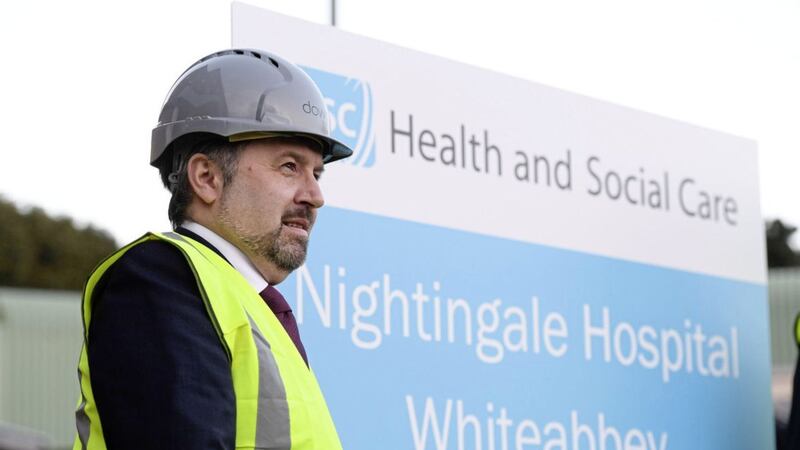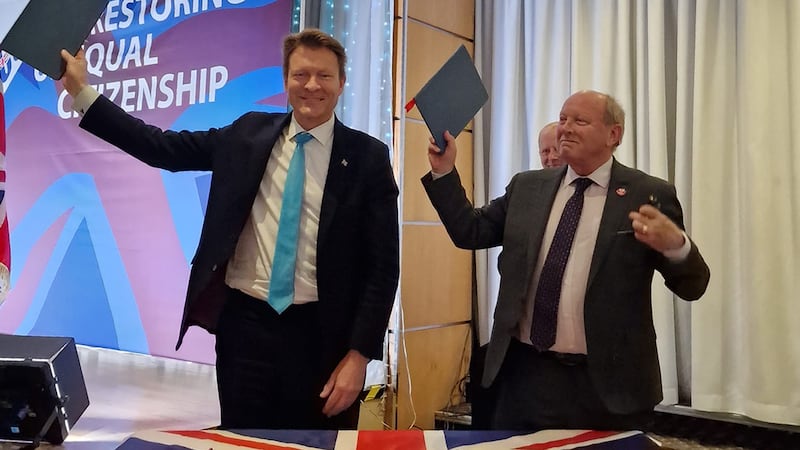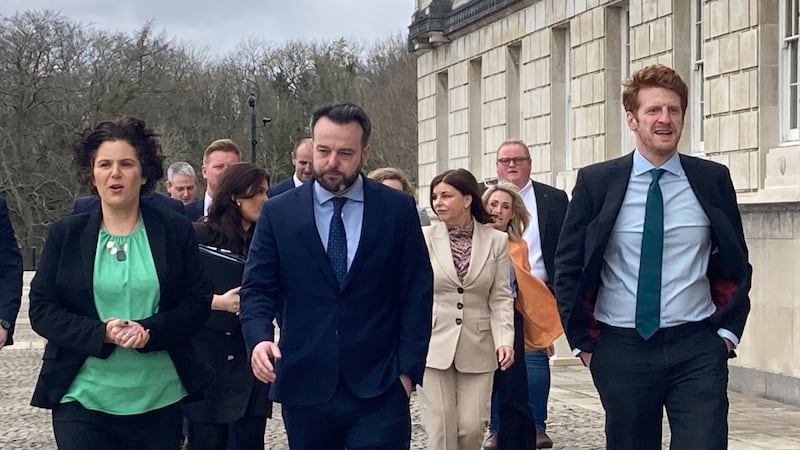WHEN it comes to tackling our public health crisis, Stormont has been less than impressive.
Its divisive and tortuous decision-making process has failed to adequately address the coronavirus pandemic and while decisions can be right or wrong, Stormont's consistent failure to make timely decisions can only be wrong.
To halt its ingrained dithering (and a likely rising death toll) our political system requires two changes.
The first is to recognise that if group decision-making can be sabotaged by the veto system, decision-making power must be removed from the group and given to one person.
For a health issue, that person can only be the health minister. So it is time to politely suggest that the other members of the Executive should stay away and let Robin Swann get on with his job. (Don't forget that SF and the DUP both had two opportunities each to take the health portfolio and both declined.)
Mr Swann has no greater medical expertise than his executive colleagues and, like the rest of us, he makes mistakes.
However, he has a quality which Sinn Féin and the DUP sadly lack: he has not used the current pandemic to make political capital for his own party, or to score points against political opponents.
While politicians tend to use most events for their political advantage, during a pandemic they might put their political ambitions on hold in the public interest.
In a crisis (and we are in one right now) politicians should become non-political public servants.
Robin Swann has already self-isolated from party politics. His executive colleagues must now do the same.
They will argue that the executive has a collective responsibility, but they already leave policy to individual ministers in areas which are less high profile than the coronavirus.
This week, for example, Edwin Poots outlined a well-reasoned vision for post-Brexit agriculture here (which is 10 years too late, but never mind). There will be no vetoes when translating his vision into policy.
But restricting specified decision-making to individual ministers is only a short-term solution.
The long-term answer lies in changing Stormont's system of government.
Unlike the Dublin government, for example, Stormont's coalition is compulsory, not voluntary - a sort of forced political marriage, reflecting Britain's sectarian solution to an Irish political problem.
Republicans would be expected to reject sectarianism, but Sinn Féin took the British government's sectarian soup along with the DUP.
The uneasy alliance between them was sweetened by both sides having a veto, allowing them to sell the compulsory coalition concept to their supporters. We can now see the tragic consequences of that decision.
Last week Sinn Féin complained, not about the veto's undemocratic nature, but about the fact that the DUP used it inappropriately.
Sinn Féin argued that the veto existed "to protect minorities", but which minorities had they in mind? Children in poverty? The less abled? Those on hospital waiting lists?
No, it was to protect the two big parties from losing their sectarian support by conferring them with a 'no surrender' veto.
If a system of government cannot adequately protect public health during a pandemic, we need a better system.
In Stormont's case that has to be voluntary coalition with a parliamentary opposition.
But that will never happen, because the present arrangement guarantees the two big sectarian parties permanent political power - an administrative variation of the old Stormont.
If we do not change the system, we must live with the problem. But living with this problem means many deaths from the coronavirus and many more from other illnesses, because they cannot be treated in time.
Ironically we killed over 3,500 people in sectarian violence and ended up with a form of government which cannot adequately protect the lives of our citizens.
The sad thing is that despite regular public relations campaigns, the system will never change.
All we can hope for in the meantime is that the Executive has the good sense to let Robin Swann get on with his job.









